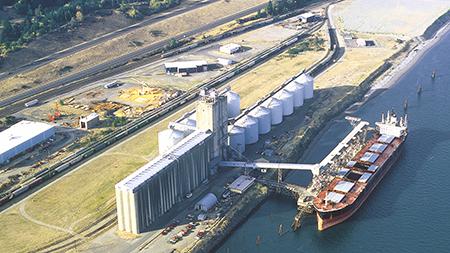A large agricultural bank recently surveyed the economic condition of agriculture, and the picture ain’t pretty. According to CoBank, we’ve seen the largest three-year drop in farmers’ incomes since the Great Depression. Now, we started the decline from record income levels, but farmers, like everyone else, quickly become accustomed to profitable prices. Three years later, we’re suffering from an across-the-board decline in the prices we receive and the profits available to spend on family living and capital investments. This cycle is no surprise to farmers, but it is sobering to contemplate the collective belt-tightening that is our industry’s fate for the foreseeable future.
The study helpfully includes graphs of farm income over the last century; we in agriculture are used to ups and downs in prices and incomes. As Ecclesiastes says, this too shall pass. But this time there is an additional factor, a difference that has to temper our optimism about the future. This time, we face a political climate that bodes ill for our ability to work out of our present surpluses through increasing sales and attention to our costs. This time, our presidential candidates have abandoned agriculture just when we need them most.
Both of the leading candidates for President have signaled opposition to the Trans-Pacific Trade Agreement (TPP). Like anything manmade, the agreement has faults. By any definition of “free trade,” the agreement falls short. But TPP will improve U.S. farmers’ access to countries with billions of consumers, the part of the world in the recent past and, presumably, the foreseeable future with the most rapid income growth anywhere in the world. American Farm Bureau has estimated that the agreement will increase farm incomes in the U.S. by more than $4 billion annually and will increase Missouri farmers’ cash receipts by $168 million each year the agreement is in effect.
American farmers are harvesting record corn and soybean crops. Many farmers in the Western Corn Belt are concerned about storage for the crops, with elevators still full of this summer’s wheat harvest. There is no incentive to increase livestock production, the largest user of our crops, because cattle, hogs and poultry prices are at unprofitable levels. Because of low prices, government payments are running well above predicted levels. We won’t work ourselves out of our predicament through increased subsidies; we can’t look to increased domestic demand to solve our problem; and we’ve hit the so-called “blend wall” on the sale and production of biofuels. We’re in a heck of a fix, and the only solution is the 95 percent of world consumers who live outside our borders.
Opponents of trade deals often complain that our competitors don’t play fair. And they don’t, as the U.S. has shown in our recent case against Chinese agricultural subsidies. But trade agreements give us the ability to challenge those competitors, and if we don’t enter in agreements with prospective customers, other countries will. The present system is far from perfect, but we should never let the perfect be the enemy of the good enough. And the TPP is good enough.


